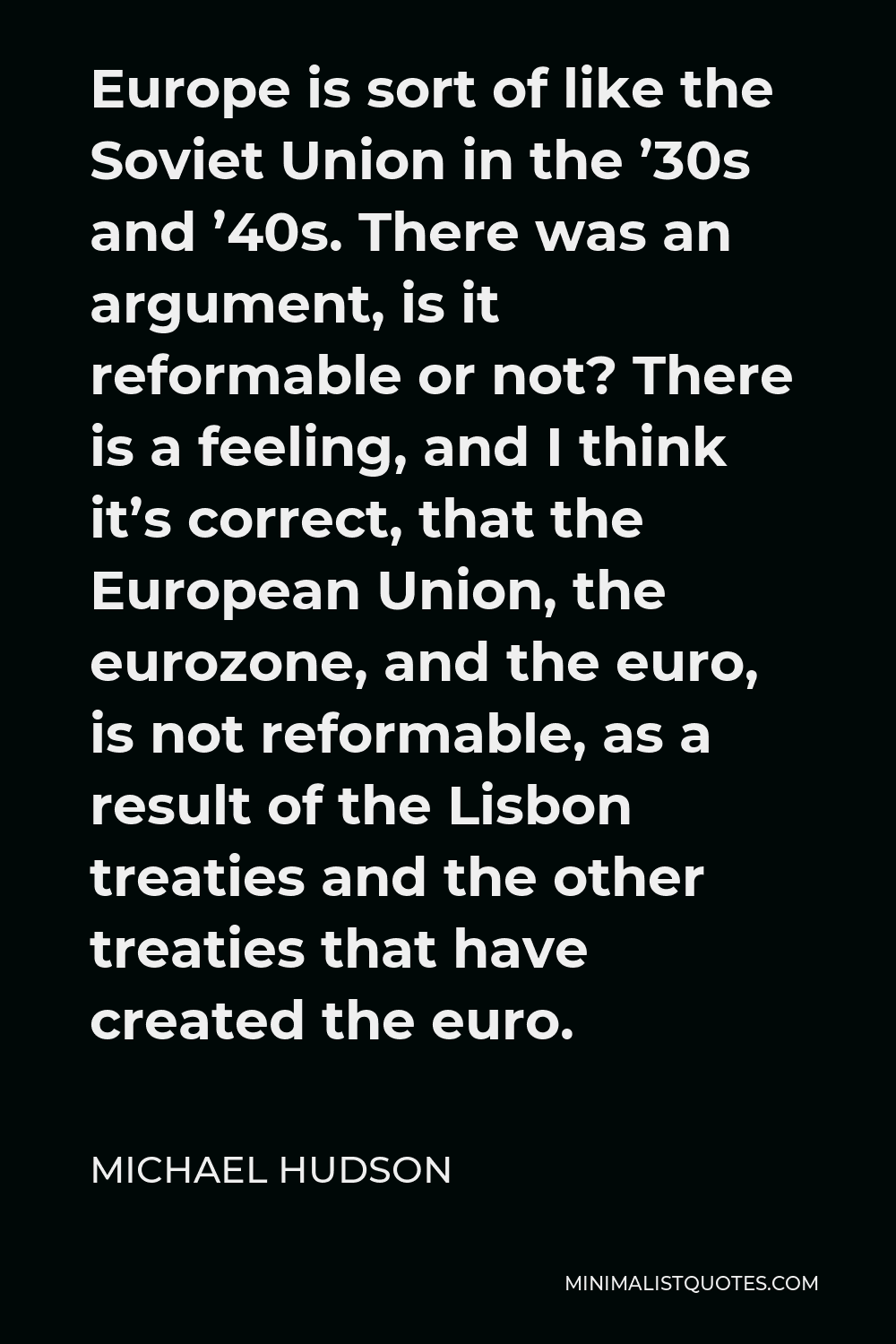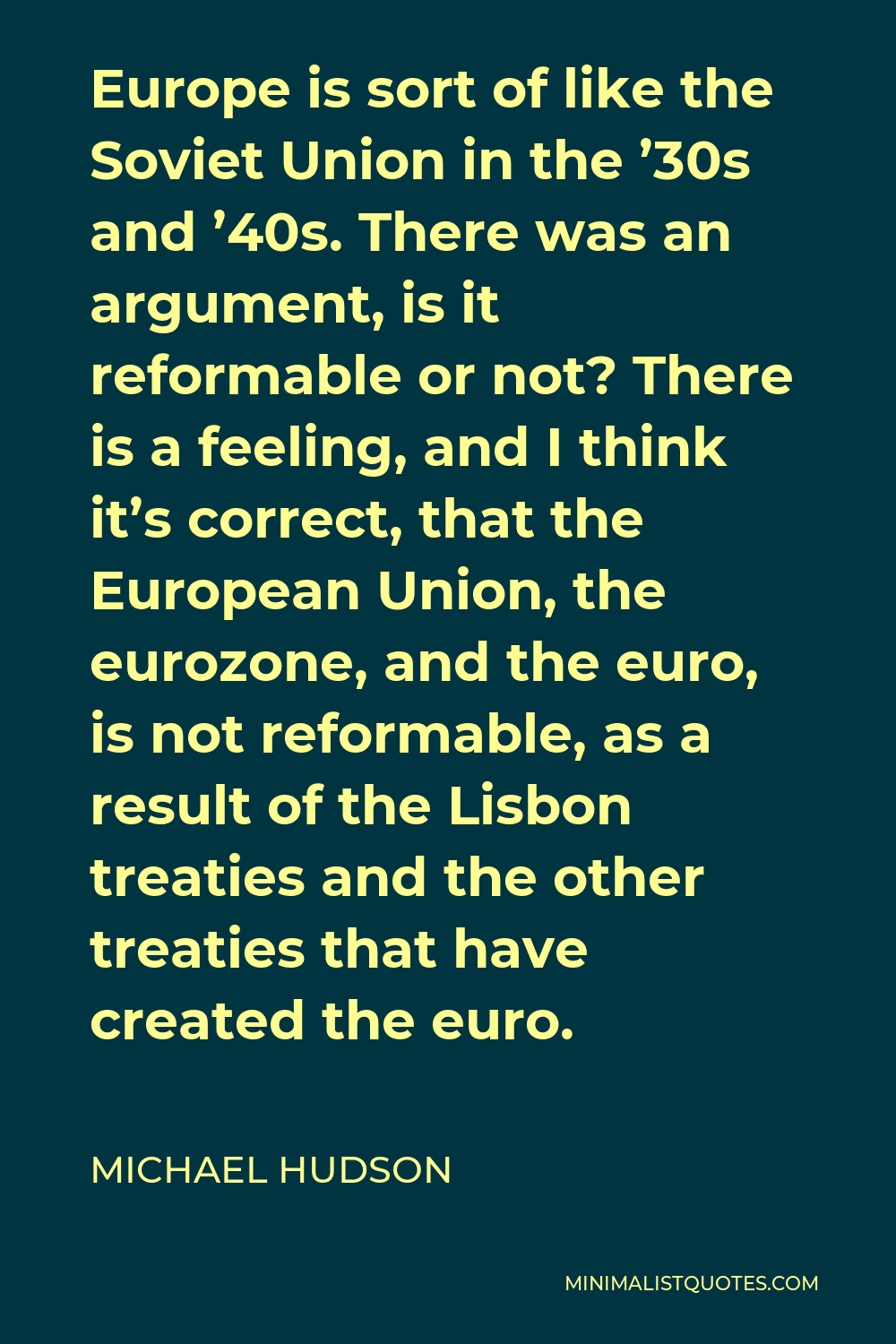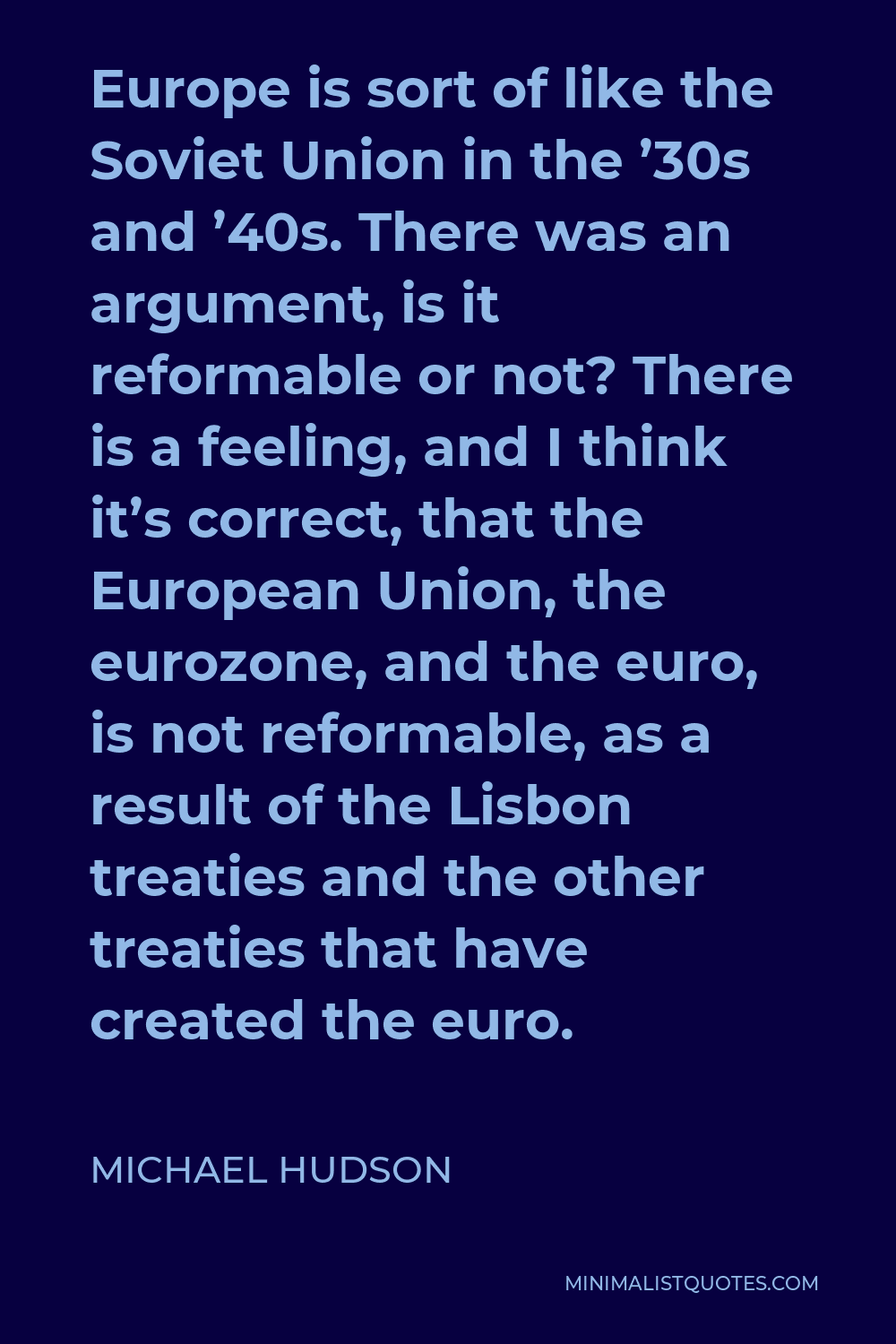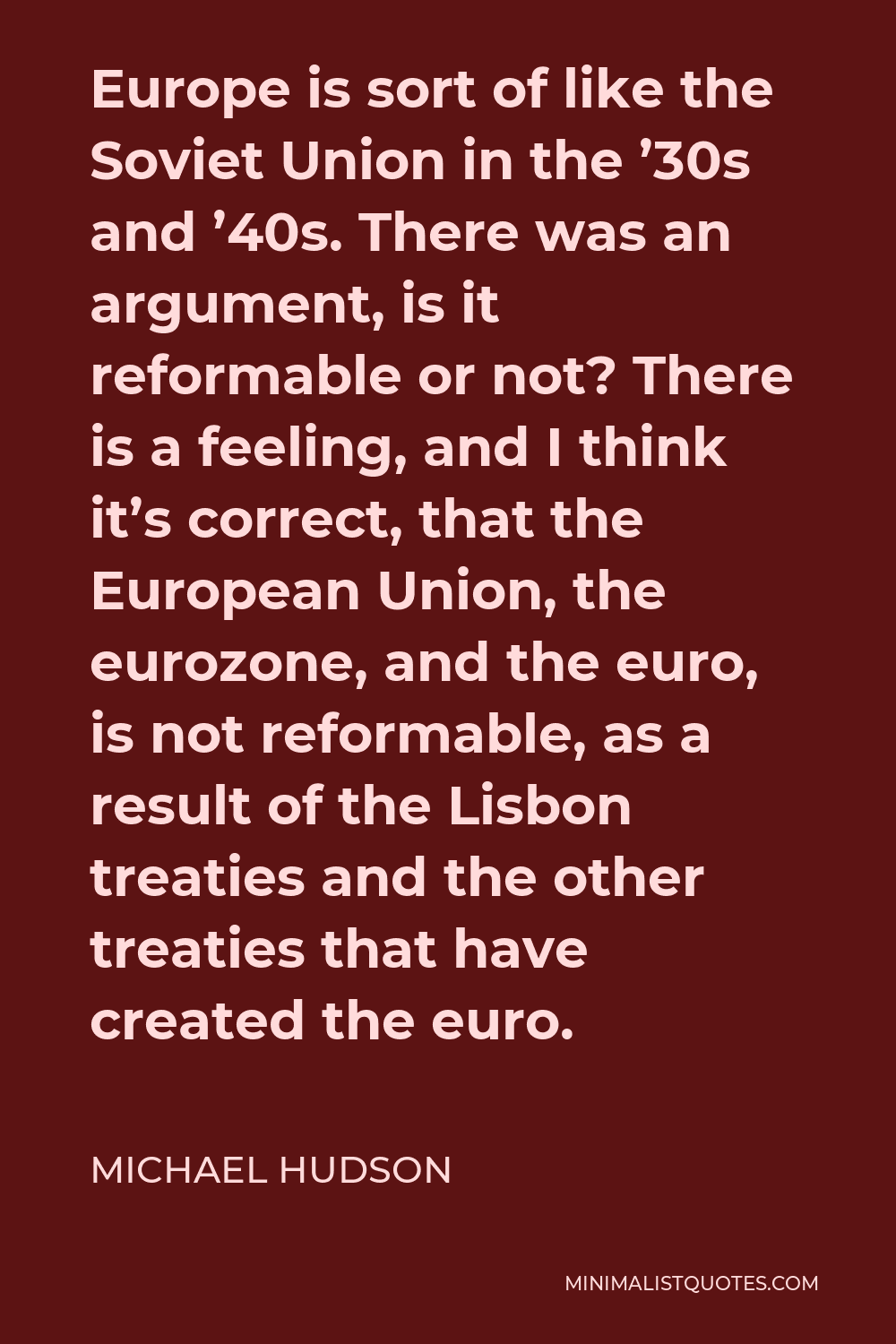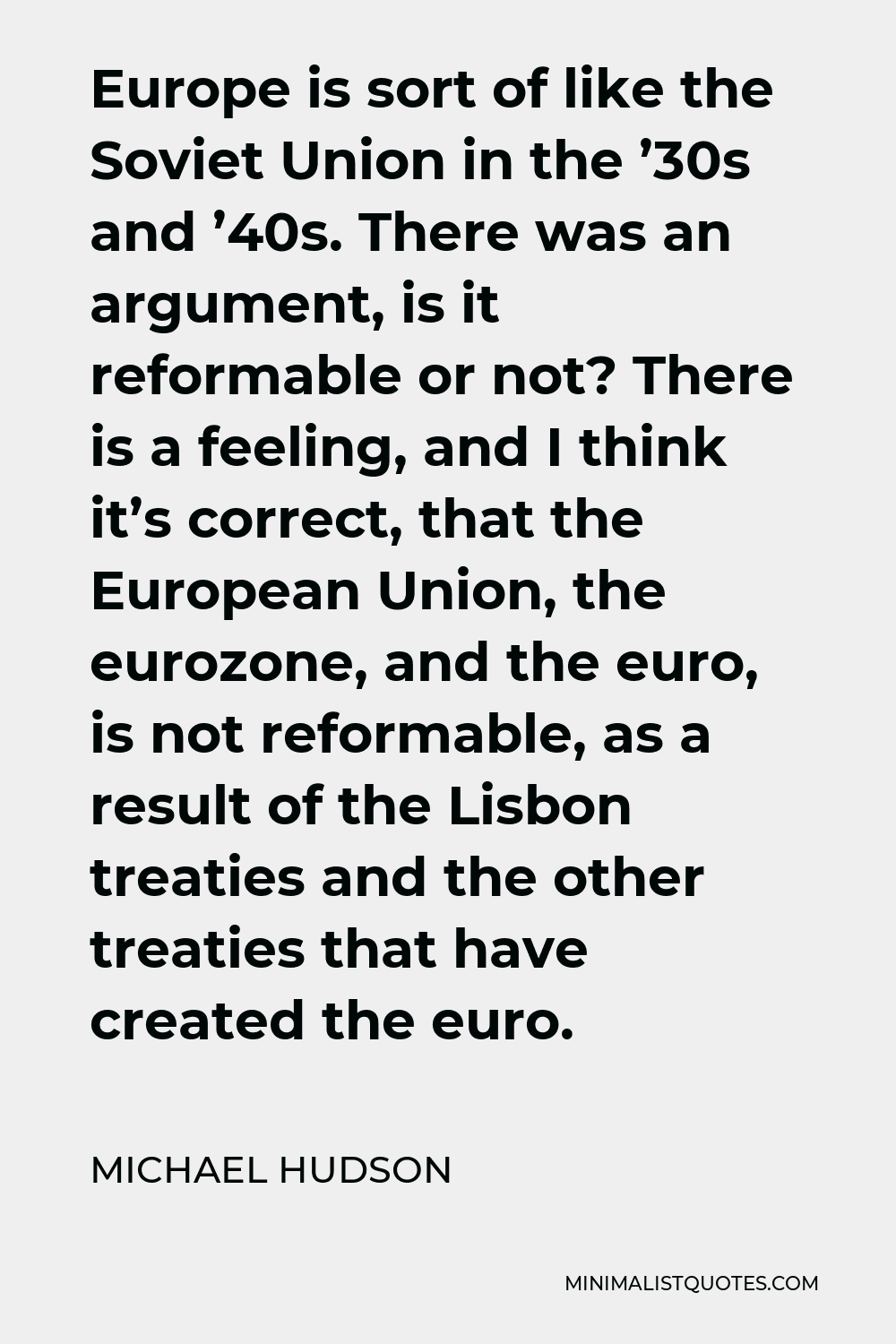The other dynamic keeping the stock market up – both for technology stocks and others – is that companies are using a lot of their income for stock buybacks and to pay out higher dividends, not make new investment,.
MICHAEL HUDSONEurope is sort of like the Soviet Union in the ’30s and ’40s. There was an argument, is it reformable or not? There is a feeling, and I think it’s correct, that the European Union, the eurozone, and the euro, is not reformable, as a result of the Lisbon treaties and the other treaties that have created the euro.
More Michael Hudson Quotes
-






-





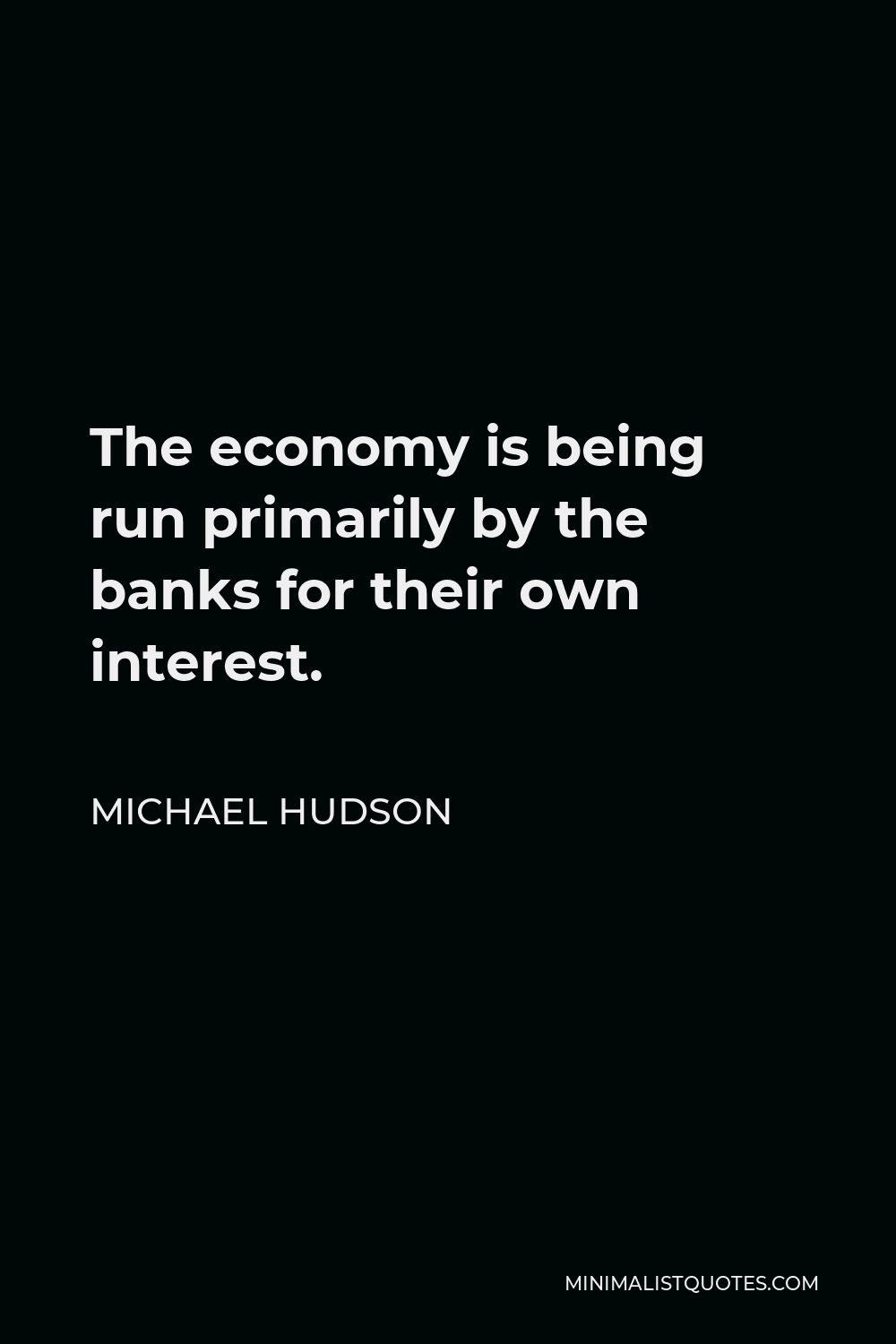
The economy is being run primarily by the banks for their own interest.
MICHAEL HUDSON -







And then the parasites have another enzyme that takes over the host’s brain. It makes the host imagine that the parasite is part of its own body, actually part of itself and hence to be protected. That’s basically what Wall Street has done.
MICHAEL HUDSON -






I don’t think that governments should permit speculation in raw materials, because they’re what the economy basically needs.
MICHAEL HUDSON -





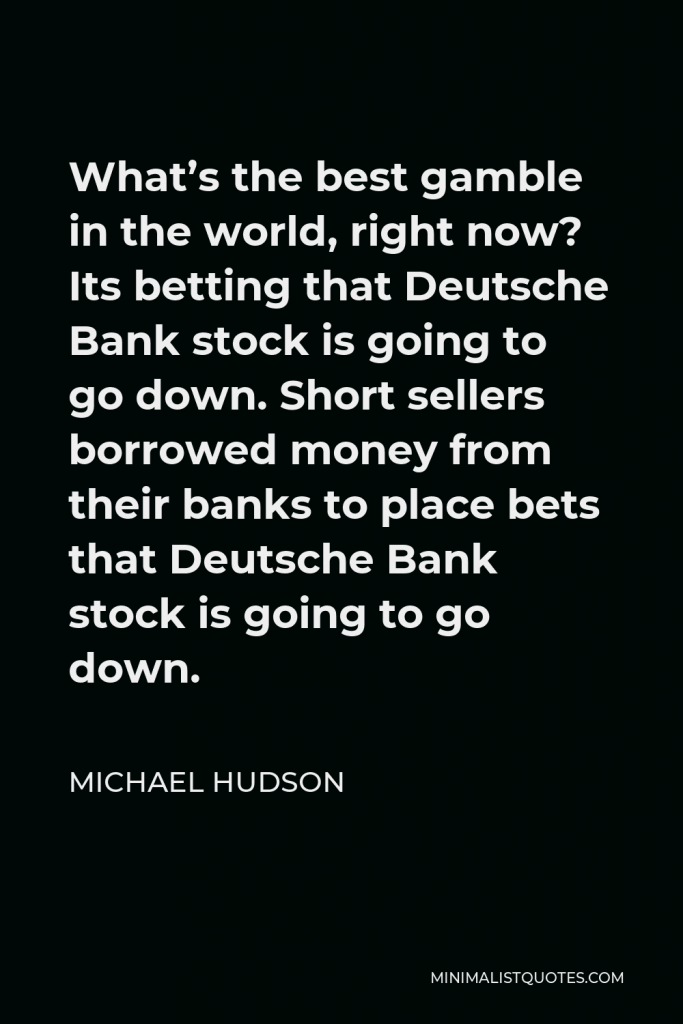

What’s the best gamble in the world, right now? Its betting that Deutsche Bank stock is going to go down. Short sellers borrowed money from their banks to place bets that Deutsche Bank stock is going to go down.
MICHAEL HUDSON -






When we say “people worry” about inflation, it’s mainly bondholders that worry. The labor force benefitted from the inflation of the ’50s, ’60s and ’70s.
MICHAEL HUDSON -





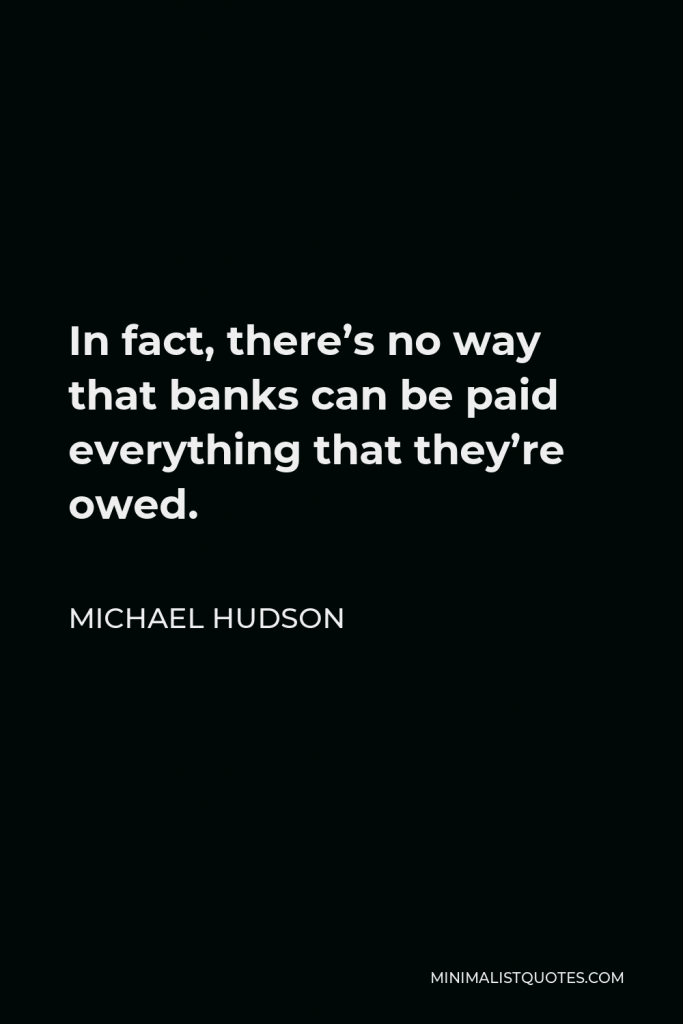

In fact, there’s no way that banks can be paid everything that they’re owed.
MICHAEL HUDSON -





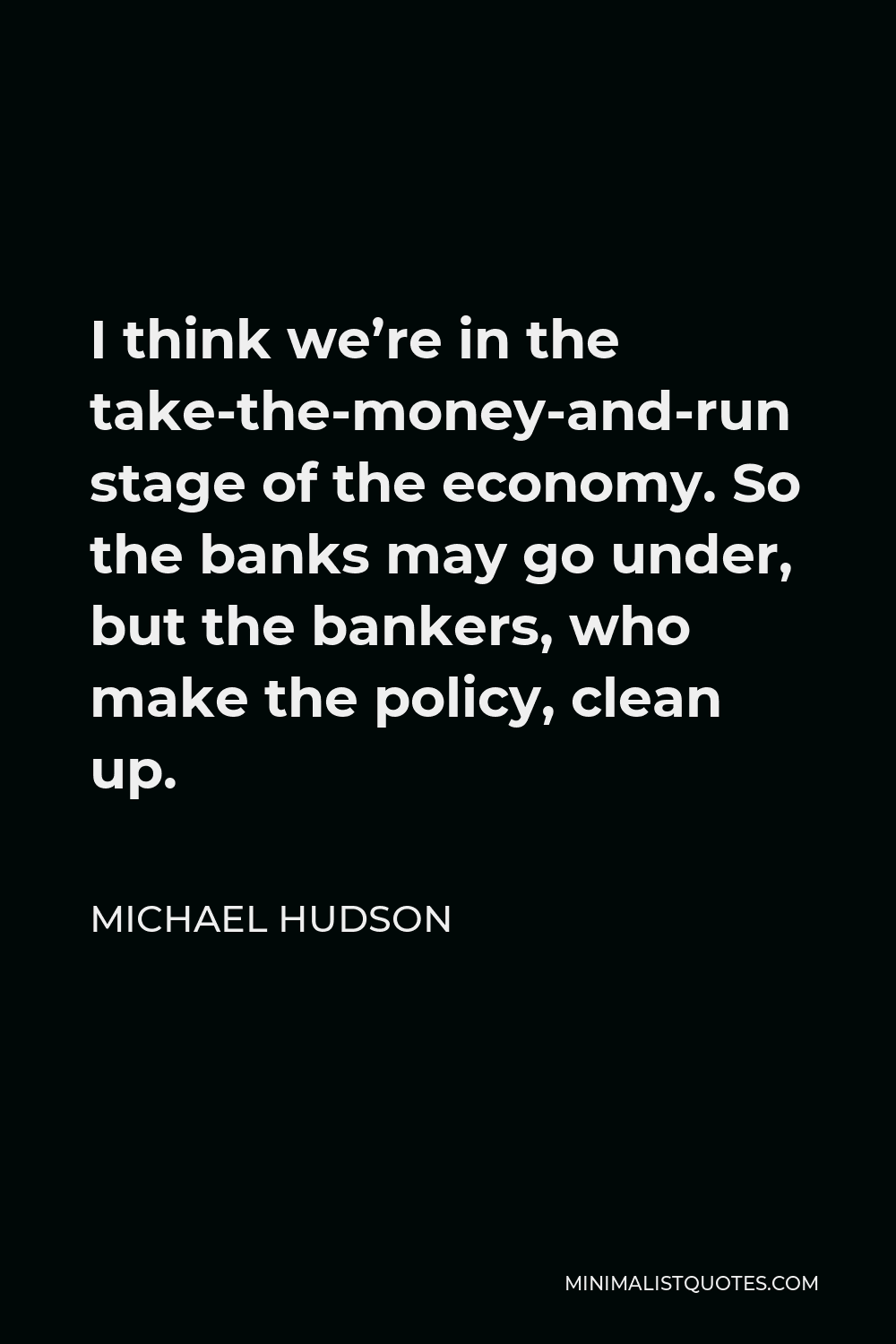
I think we’re in the take-the-money-and-run stage of the economy. So the banks may go under, but the bankers, who make the policy, clean up.
MICHAEL HUDSON -





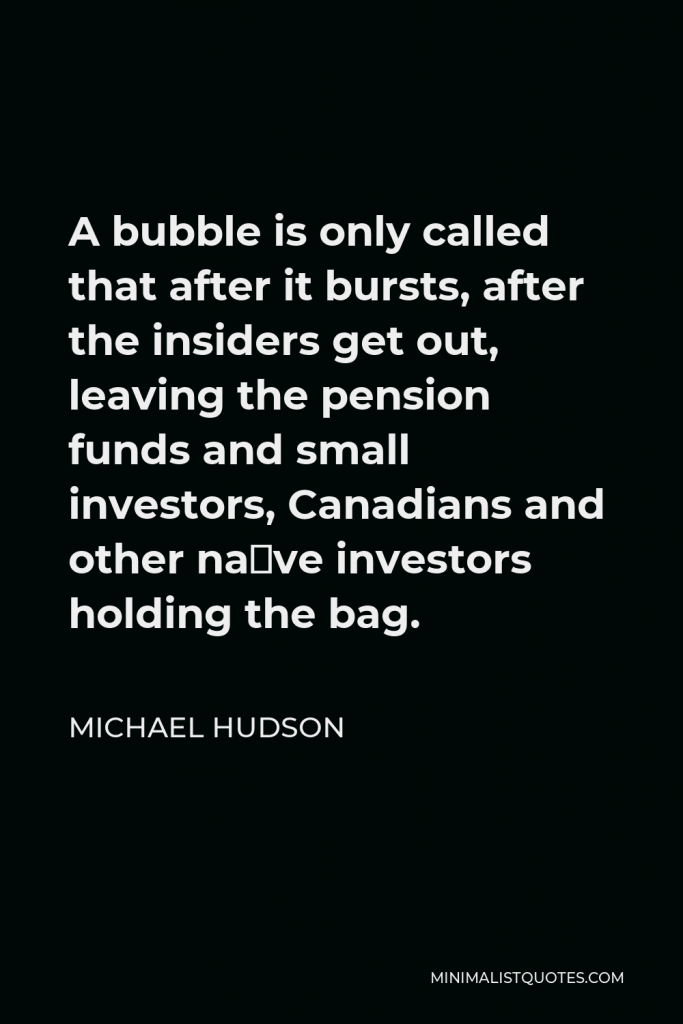

A bubble is only called that after it bursts, after the insiders get out, leaving the pension funds and small investors, Canadians and other naïve investors holding the bag.
MICHAEL HUDSON -





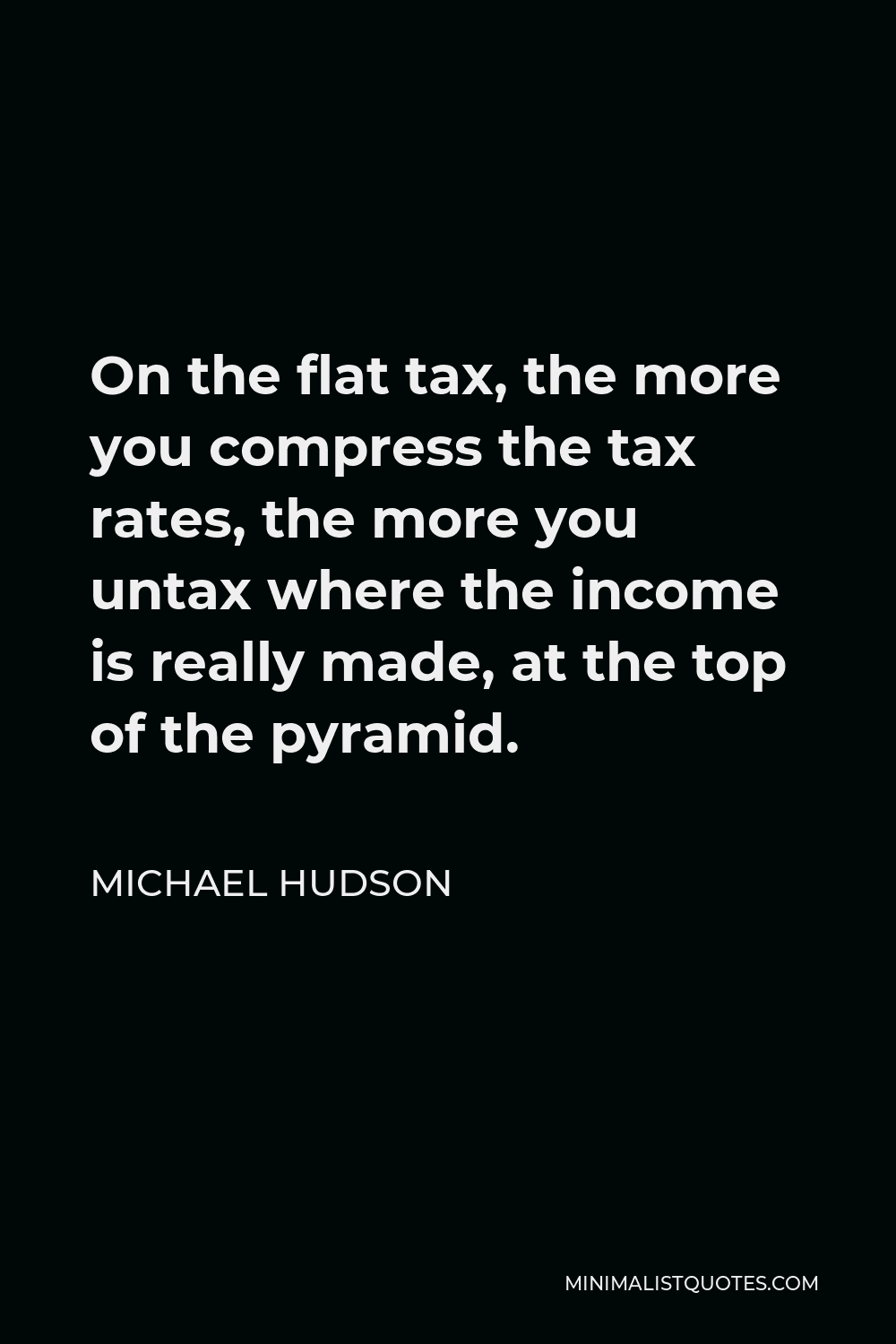
On the flat tax, the more you compress the tax rates, the more you untax where the income is really made, at the top of the pyramid.
MICHAEL HUDSON -





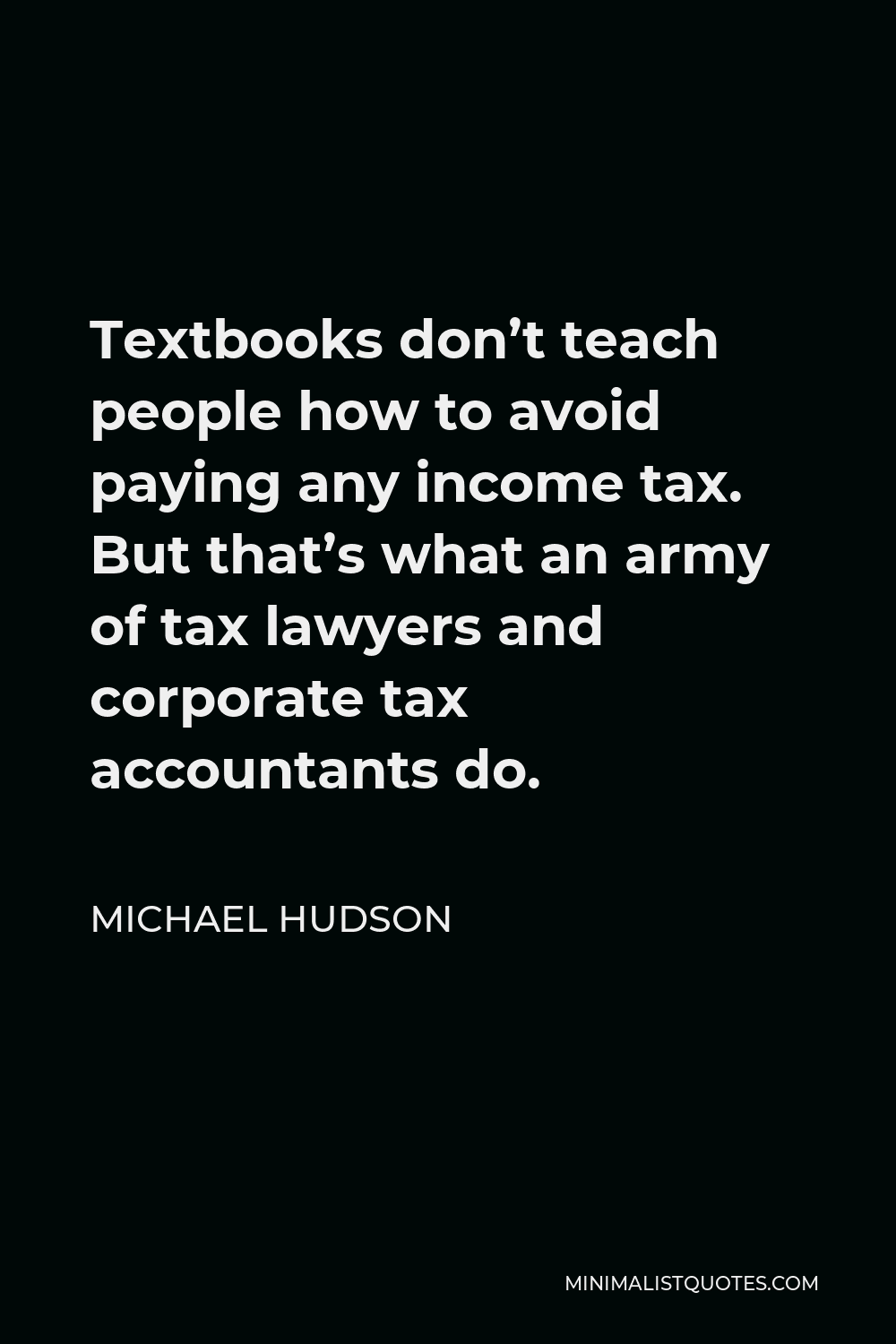
Textbooks don’t teach people how to avoid paying any income tax. But that’s what an army of tax lawyers and corporate tax accountants do.
MICHAEL HUDSON -





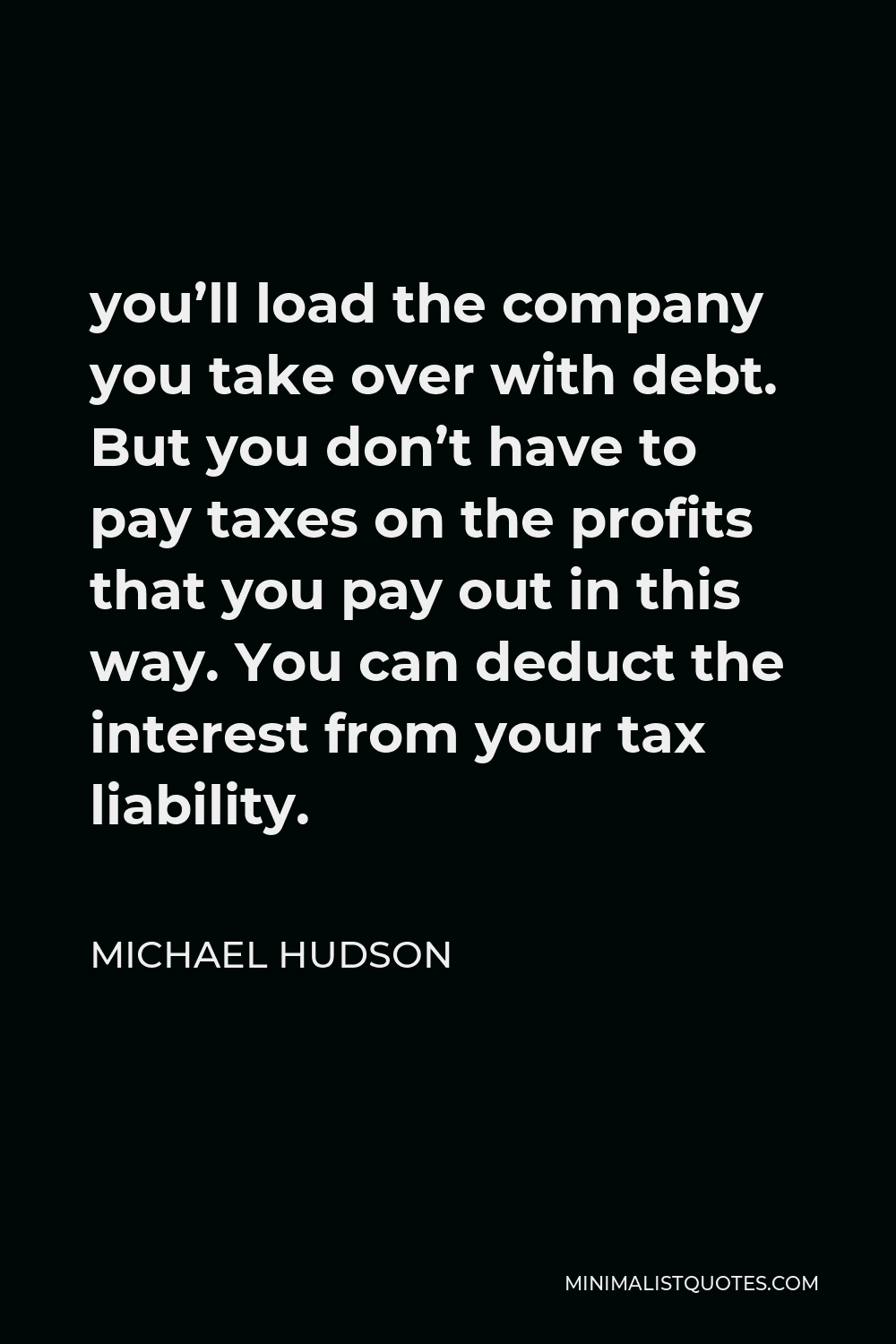
you’ll load the company you take over with debt. But you don’t have to pay taxes on the profits that you pay out in this way. You can deduct the interest from your tax liability.
MICHAEL HUDSON -





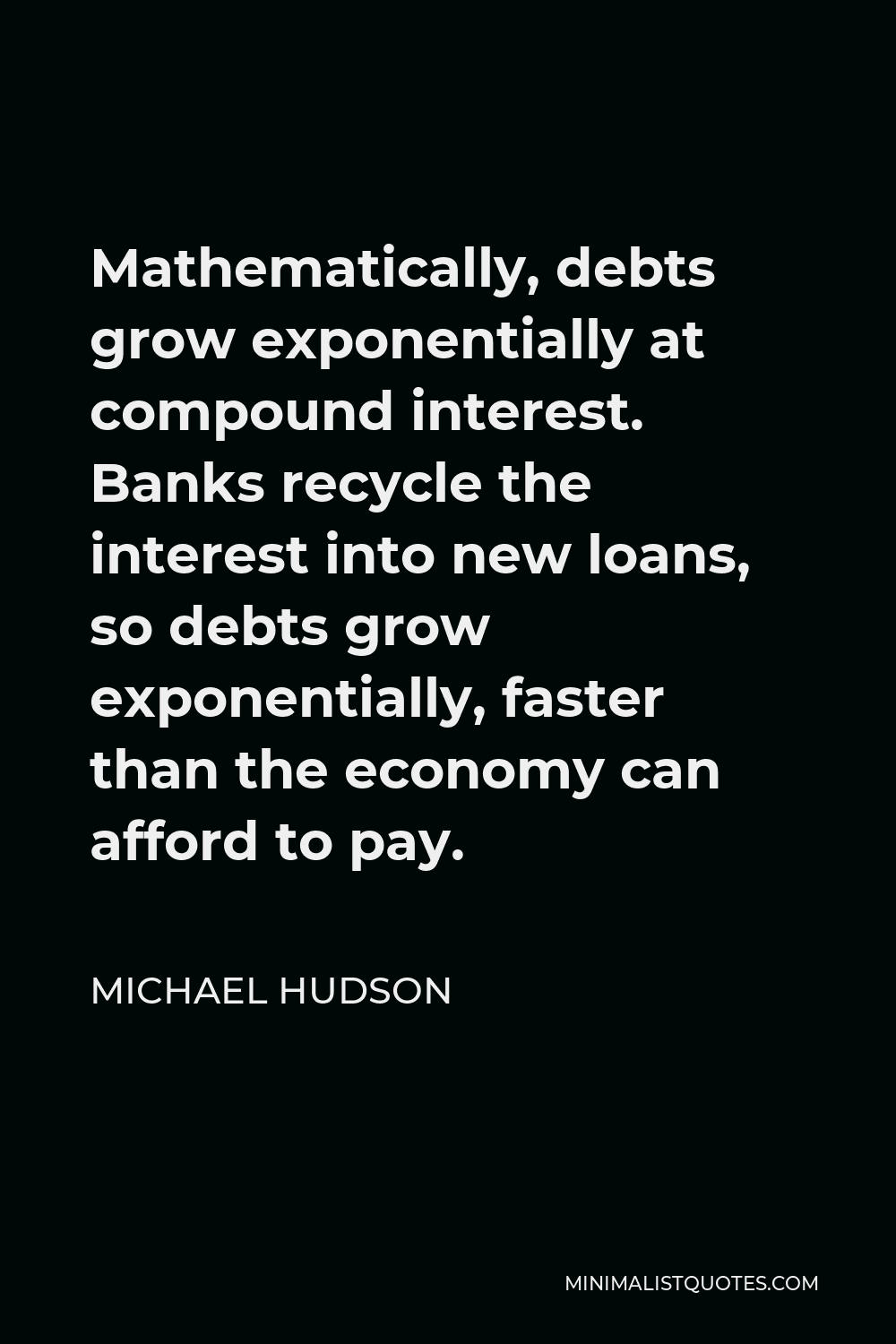
Mathematically, debts grow exponentially at compound interest. Banks recycle the interest into new loans, so debts grow exponentially, faster than the economy can afford to pay.
MICHAEL HUDSON -






Now, suppose that a homeowner puts down only 3% of their own money or 3.5% for the FHA. That means if prices go down by only 3%, the house will be in negative equity and it would pay the homeowner just to walk away and say, “The house now is worth less than the mortgage I owe.
MICHAEL HUDSON -





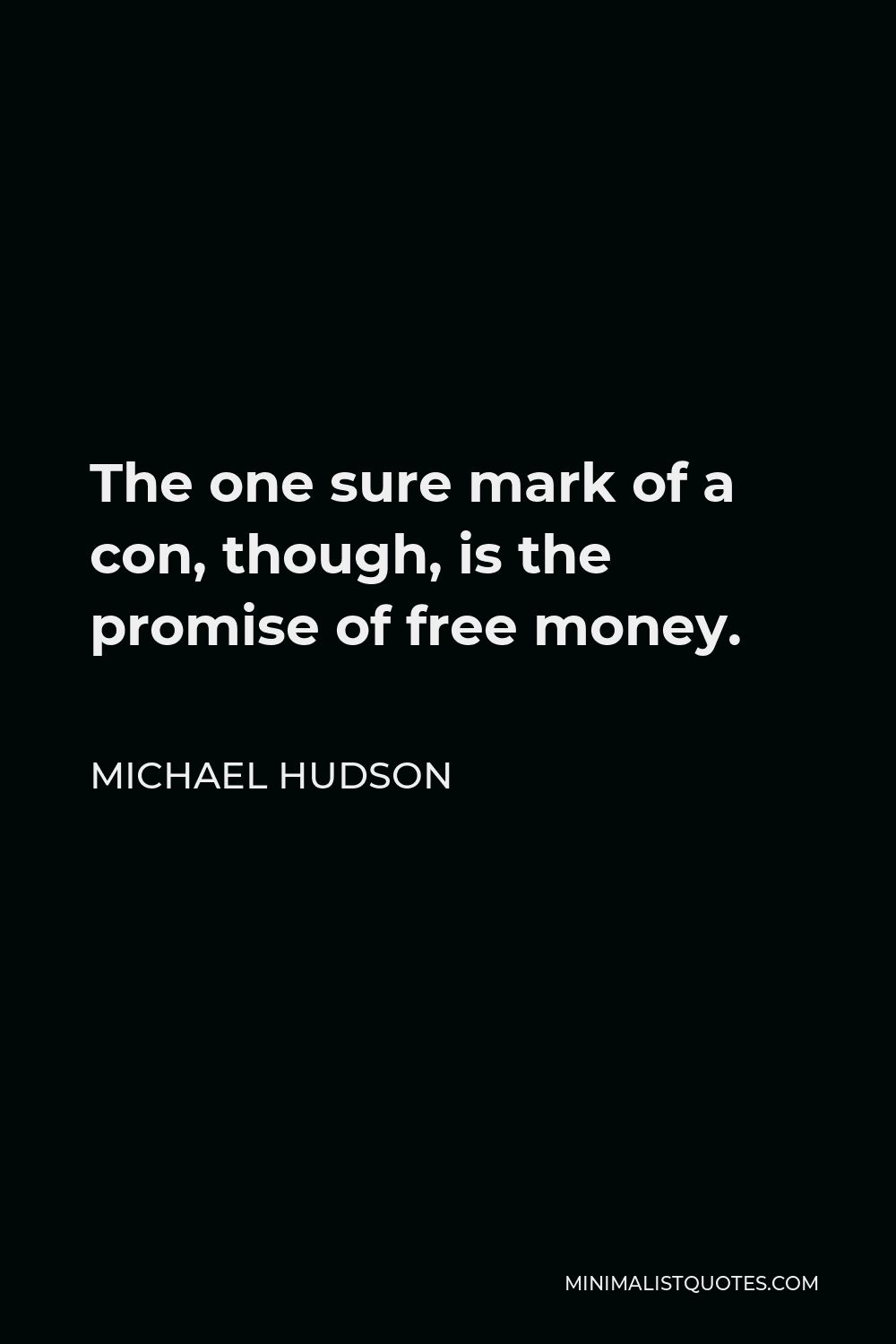
The one sure mark of a con, though, is the promise of free money.
MICHAEL HUDSON -





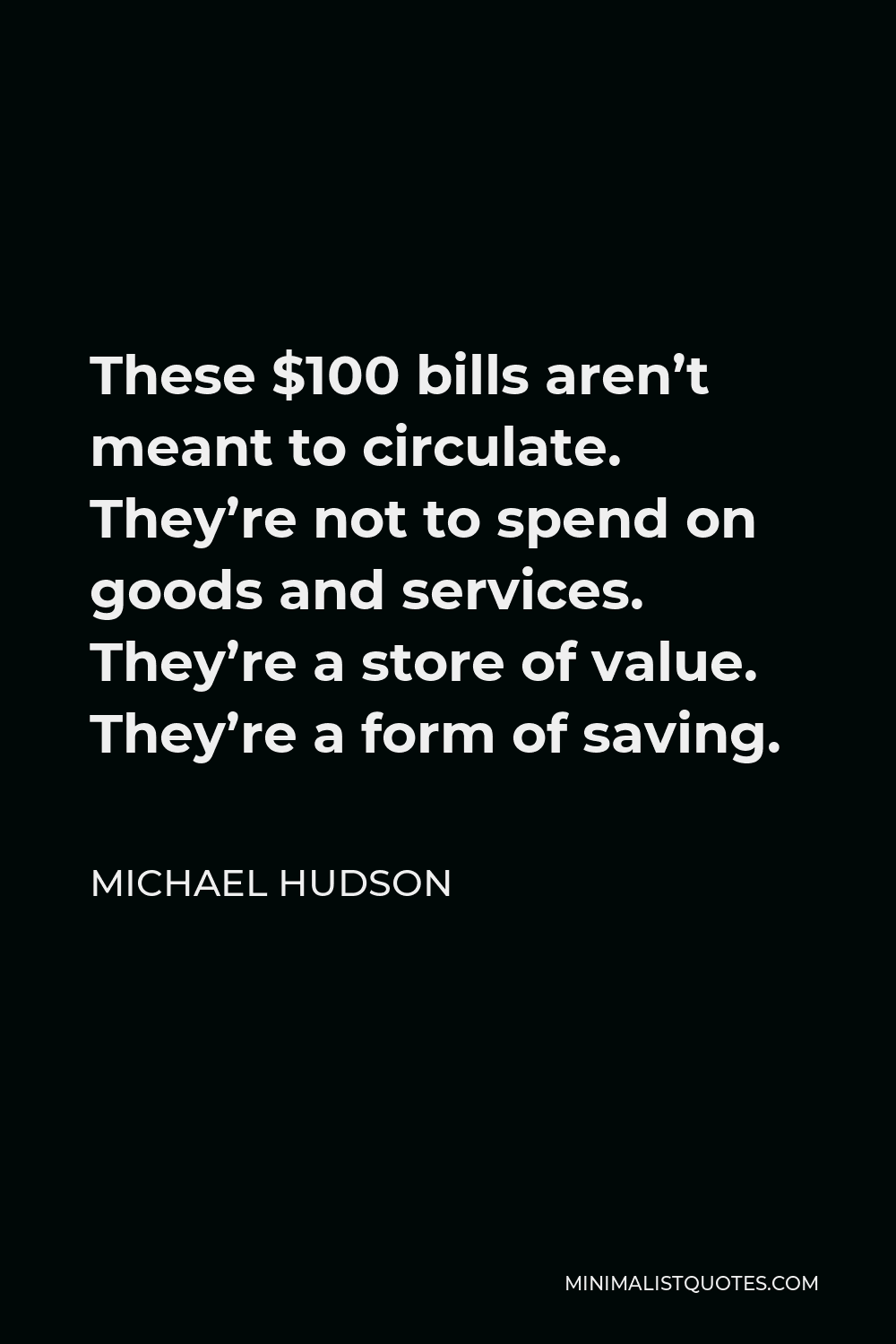
These $100 bills aren’t meant to circulate. They’re not to spend on goods and services. They’re a store of value. They’re a form of saving.
MICHAEL HUDSON
